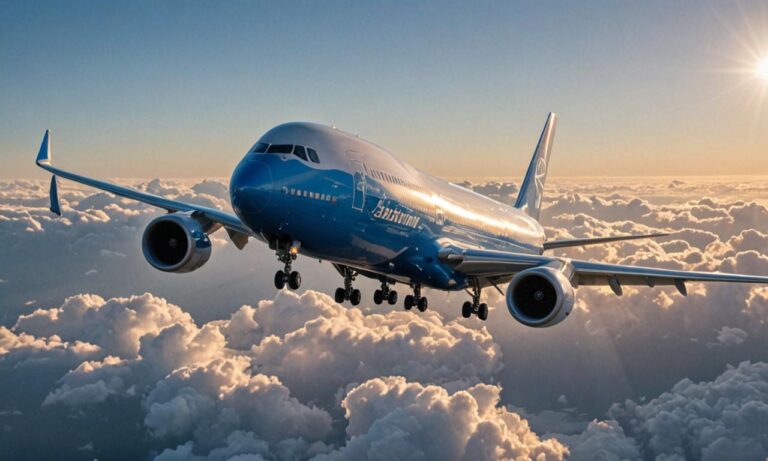When it comes to aviation, the phrase “If it ain’t Boeing, I ain’t going” has been a mantra for many. This catchy slogan reflects a strong preference for Boeing aircraft among certain segments of travelers and aviation enthusiasts. But what lies behind this sentiment, and is it a valid criterion for choosing which flights to board?
Understanding the Slogan
The phrase “If it ain’t Boeing, I ain’t going” encapsulates a belief that Boeing airplanes are inherently safer, more reliable, and offer a superior flying experience compared to those manufactured by other companies. It reflects a sense of loyalty and trust towards the Boeing brand, which has a long history in the aviation industry.
The Legacy of Boeing
Boeing, founded in 1916, has established itself as one of the leading manufacturers of commercial aircraft worldwide. Over the decades, Boeing has introduced iconic aircraft such as the Boeing 707, 747, 777, and 787, which have shaped the modern aviation landscape. The company’s commitment to innovation, safety, and performance has earned it a sterling reputation among aviation professionals and passengers alike.
Factors Driving the Preference
Several factors contribute to the preference for Boeing aircraft:
- Safety Record: Boeing has a strong safety record, with its aircraft renowned for their robust design and reliability. This track record instills confidence in passengers and airlines alike.
- Comfort and Amenities: Boeing aircraft are known for their spacious cabins, comfortable seating, and modern amenities, enhancing the overall passenger experience.
- Technological Innovation: Boeing continually integrates cutting-edge technologies into its aircraft, ensuring they remain at the forefront of aviation excellence.
- Global Presence: Boeing’s extensive global presence and customer support network provide reassurance to airlines operating its aircraft.
Debunking the Myth
While the preference for Boeing aircraft is understandable given their reputation and legacy, it’s essential to recognize that aircraft safety and performance are not determined solely by the manufacturer. Regulatory bodies such as the Federal Aviation Administration (FAA) and the European Union Aviation Safety Agency (EASA) set stringent standards for all aircraft, regardless of their manufacturer.
Additionally, other reputable manufacturers such as Airbus have their own track records of safety and innovation. Airbus aircraft, including the A320, A330, A350, and A380, are widely used by airlines worldwide and have earned the trust of passengers and industry professionals.
Choosing the Right Flight
When selecting a flight, it’s crucial to consider various factors beyond the manufacturer, including the airline’s safety record, route network, and overall reputation. While a preference for Boeing aircraft is valid for some, it should not overshadow other essential considerations when making travel decisions.
The phrase “If it ain’t Boeing, I ain’t going” reflects a strong affinity for Boeing aircraft among certain individuals. While Boeing’s legacy, safety record, and technological innovation are commendable, it’s essential to approach aircraft selection with a balanced perspective, considering all relevant factors for a safe and enjoyable travel experience.
Environmental Considerations
While Boeing aircraft are renowned for their performance and comfort, there’s a growing awareness of environmental impacts associated with air travel. Factors such as fuel efficiency, emissions, and noise pollution play a significant role in assessing the sustainability of different aircraft models.
Manufacturers, including Boeing, are under increasing pressure to develop more environmentally friendly aircraft designs and technologies to mitigate their carbon footprint. This includes advancements in aerodynamics, alternative fuels, and engine efficiency to reduce emissions and minimize environmental impact.
Comparison Table: Boeing vs. Airbus
Below is a comparison table highlighting key features of Boeing and Airbus aircraft:
| Criteria | Boeing | Airbus |
|---|---|---|
| Safety Record | Strong | Robust |
| Comfort | Spacious cabins | Ergonomic designs |
| Technological Innovation | Cutting-edge | Advanced |
| Global Presence | Extensive | Widespread |
Frequently Asked Questions
- Are Boeing aircraft always safer than Airbus?
- How do Boeing and Airbus compare in terms of fuel efficiency?
- What are the primary environmental concerns associated with aircraft manufacturing?
- How do regulatory bodies ensure the safety of aircraft from different manufacturers?
- What role do airlines play in ensuring passenger safety and comfort?
See also:






